Shin Date
Nascimento : 1906-12-15, Nagano, Nagano Prefecture, Japan
Morte : 1960-05-06
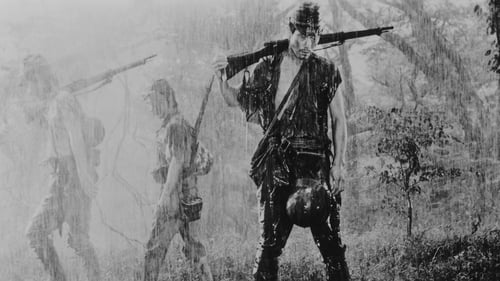
Filipinas, 1945. O Exército Imperial Japones foi reduzido a um bando de maltrapilhos escondidos nas florestas. Entre eles está o soldado Tamura. A situação vai de ruim a péssima e face as condições extremas que os homens enfrentam, alguns enlouquecem e outros sobrevivem através do assassínio e canibalismo. Em meio a isso tudo, o soldado Tamura tenta sobreviver sem abandonar os seus princípios.
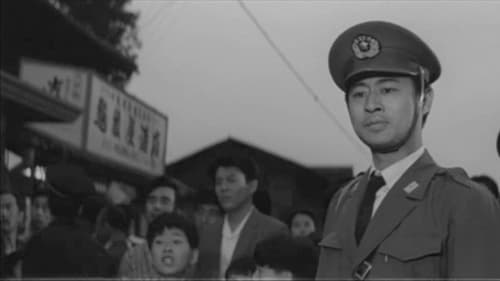
A man is wrongfully accused of murder.

Japanese "kayo" film centered around the song "Tokyo gozen sanji" by Frank Nagai.

A scrap iron carrier arrived at Tokyo bay. The ship swarmed with the stevedores, the souvenir seller and the hookers. The crews of ship were oppressed by arrogant captain and his officers. The crews caused an uprising. A manager of stevedore ordered his employee leader to suppress an uprising...

Vice-principal
A woman falls in love with her sister's fiancé.

Emi Ikushima, a star actress in the Roses, is half-hearted, but she wasn't disappointed by the news of her father Enmy's sudden death, and she performed enthusiastically on the stage that night, attracting a crowded audience.

Giemon
Christ in Bronze is a 1955 black-and-white Japanese film directed by Minoru Shibuya. It was entered into the 1956 Cannes Film Festival.
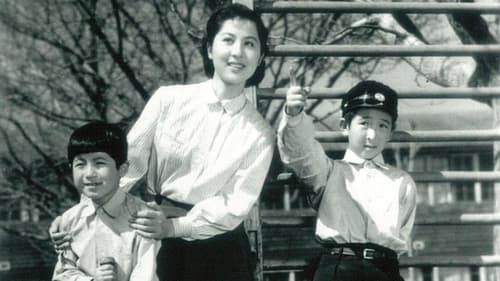
Doctor
A university professor and his wife have two sons with infantile paralysis. Through trial and error, they struggle to open a school for disabled children at their own expense. Based on a true story, it features natural child performances under Hiroshi Shimizu’s skillful direction.

Kichizaemon Aoyama

Ginko, a poor cobbler's daughter, becomes a geisha to support her family. She passes from one geisha house to the next, trying to find love and hope in the process. No matter how hard she tries, she just can't escape her sad fate.
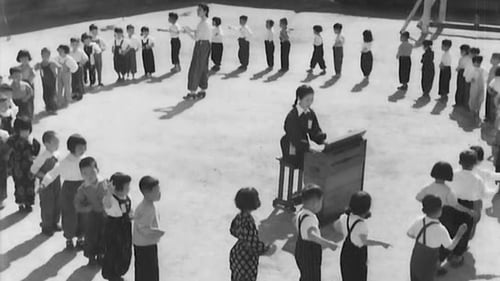
Shows the devastation caused by the atomic bomb, and by use of a fictional storyline, portrays the struggle of the ordinary Japanese people in dealing with the aftermath.

Usuda
An attempt is made to suppress a journalist's investigation of collusion between a rural police chief and the local gangster bosses.
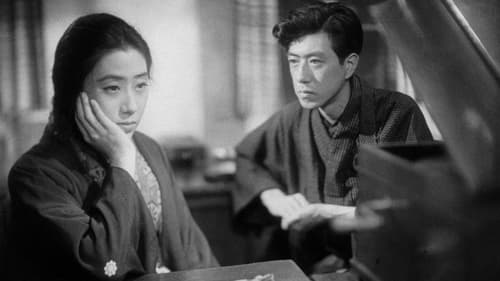
Kiyozumi
Sumako, a country girl, becomes a great actress with the help of Hogetsu,a scholar who brought some of European realism to the Japan's stage. The relationship leads to the end of his marriage and the breakup of his Arts Society. This is another version of Kenji Mizoguchi's film "The Love of Sumako the Actress" ("Joyû Sumako no koi"), from the same year. Both tells the story of the famous actress Sumako Mitsui (1886-1919), considered the first great modern theater actress in Japan. Mizoguchi himself is said to have preferred Kinugasa's version.

Shakuhachi Teacher
An episodic film about life in and around a rural police station and the people it serves.

Japanese adaptation of LES MISERABLES. The last film of director Itami took inspiration from Les Miserables. Transpiring during the Southwestern War of 1877 in Japan, which was the last civil war in the country, a criminal escapes prison only to be found by a monk. The criminal decides to turn a new leaf based on their conversation and goes on to become a town's mayor. He hears news of a mistaken arrest and identity. The revelation of truth is the start of a series of miseries.

Akiba
This film is based on a real Meiji era performer -- and tells of Tochuken's partnership with his wife (played by Chikako Hosokawa) who played shamisen for his songs/recitations), his affair with a geisha (Sachiko Chiba), and the deterioration of his partnership and marriage.

Minami
Chorus of a Million People










